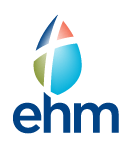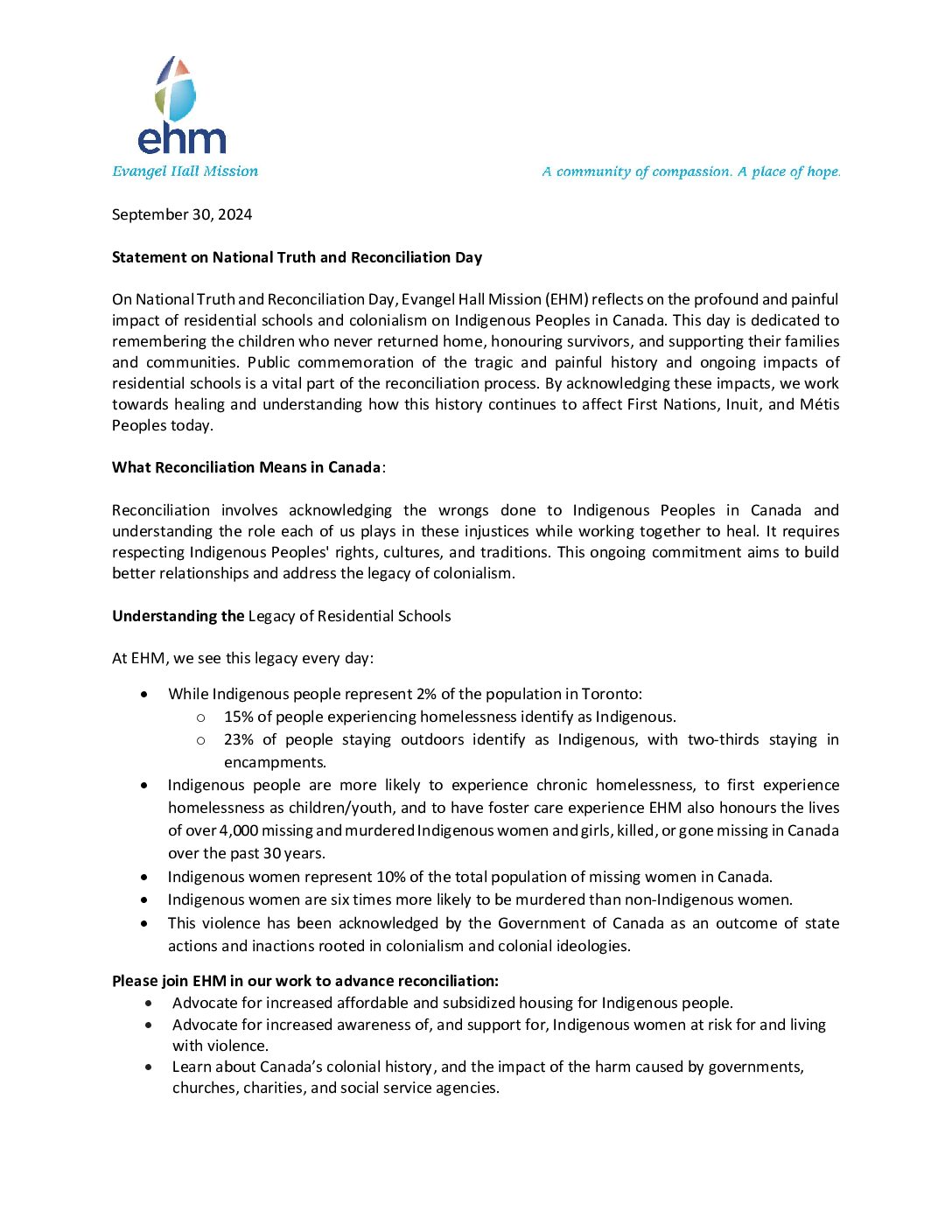Truth and Reconciliation
At EHM, we see the impact of Residential Schools every day; as Indigenous people who use EHM’s services and who live in EHM’s housing, continue to experience racism and the legacy of colonialism through a variety of manifestations.
In recognition of this, EHM began a journey of listening, learning, and action.
- We are listening to what Indigenous Peoples are saying about the racism they are experiencing, and what changes and actions are needed.
- We are learning about Canada’s colonial history, the role of the Presbyterian Church in Canada in residential schools, how the decisions and actions in the past have impacted the lives of Indigenous Peoples today, and they will continue to have impact for many generations ahead.
- We are taking action. We are looking at our own policies and practices at EHM, and we are advocating for community and system-wide change, including advancing the recommendations from the Truth and Reconciliation Commission.
Please join us on this journey of changemaking in solidarity with our First Nations, Metis and Inuit friends across Turtle Island.
letters of Commitment
Spiritual Care Committee
LAND Acknowledgement
The work of Evangel Hall Mission takes place on the traditional territory of the Mississaugas of the New Credit, the Wendat, and the Anishnawbe Indigenous peoples.
Living on this territory makes all people in Toronto treaty peoples, including those who come as settlers, or immigrants of this generation or earlier generations, including those brought involuntarily as a result of the TransAtlantic Slave Trade.
This land was very important for Indigenous people who lived on it before us, and this land is still important for Indigenous people today.
Indigenous ways of living with each other, and their ways of relating to the Creator, have always been connected to this land and its creatures.
Thank you to the Presbyterian Church in Canada, and the Presbytery of East Toronto for their generous funding to support EHM to do this important work.
To read more about the Presbyterian Church in Canada's commitment to healing and reconciliation, click here.


